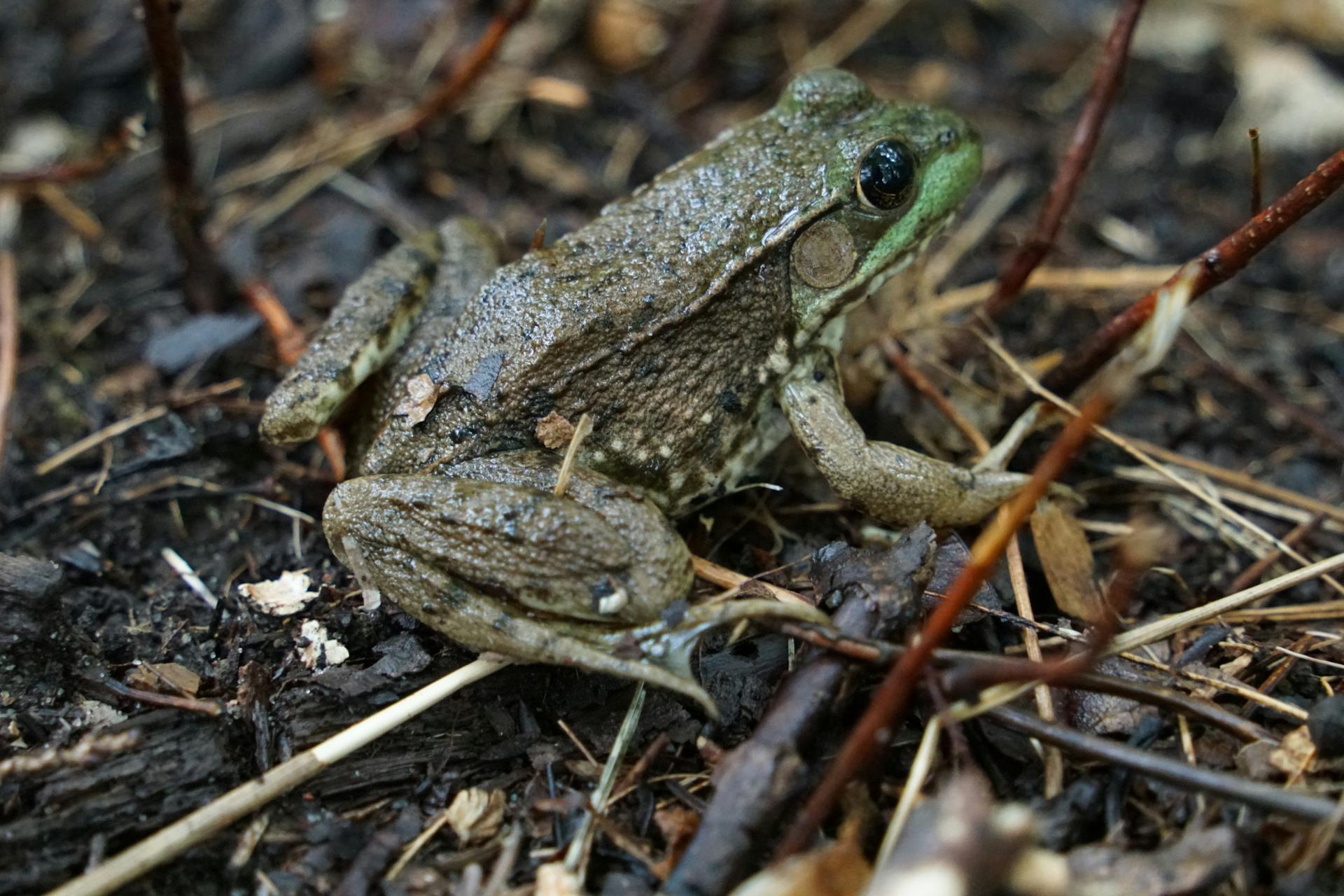
Short cycling in air conditioning occurs when an air conditioning unit turns on and off too often, causing it to cool down your home in short bursts instead of long cycles. This can be both wasteful and inefficient, making your AC unit work harder and possibly lead to damaged equipment. To fix this problem, follow these steps:
First, make sure the thermostat is set to the right temperature. Many users simply don't realize that their thermostat is set too high, forcing their AC unit to cycle on and off quickly. It's important to set a comfortable temperature but not one that is too high or low for your AC system to handle.
Next, ensure that the condenser coils are clean. A dirty filter can cause heat buildup in the system, leading the compressor to turn on and off more frequently than necessary. By cleaning the coils periodically, you should be able to keep them free from dust and other materials that can make them inefficient.
Finally, have your system checked professionally at least once a year for any potential problems or issues that may be causing short cycling. A qualified technician will be able to diagnose any potential issues with your unit such as loose connections or inadequate air flow that could be contributing to the problem. The technician may also suggest additional methods of keeping your system running optimally such as ensuring proper ventilation or changing your filter more often than usual.
By following these steps, you should be able to fix a short cycling air conditioner without having to invest in too much money or effort fixing it yourself. Regular maintenance and professional checkups are key if you want to keep your system running efficiently while avoiding costly repairs later on down the line!
Discover more: Knee Replacement Fix Bow Legs
What causes short cycling of an air conditioner?
Short cycling of an air conditioner can be an incredibly frustrating issue for homeowners, as the constant on and off cycling of the machine wastes energy and creates unnecessary wear on its components. With that being said, it’s important to know what causes this issue in order to better understand how to get it fixed.
There are several potential causes of short cycling in your air conditioner, including: Low Refrigerant Levels, Faulty Capacitor, Clogged Air Filter, Malfunctioning Thermostat and Tightened Switches.
Low Refrigerant Levels will cause a cycle of short-cycling due to insufficient cooling capacity. This necessitates regular cycle checks and topping up of refrigerant if needed. A Faulty Capacitor may also lead to a similar issue if the motor is not being supplied with adequate energy. If the capacitor can't hold enough charge for the motor to turn On and Off quickly enough, it will cycle quickly instead of reaching its temperature setpoint before turning off. To prevent this from happening, it's essential that you get electrical components tested periodically.
A Clogged Air Filter is another common culprit for short-cycling. If your filter is blocked with dirt and dust particles, it won't allow enough airflow through the system to cool down the interior space efficiently - causing your AC unit to shut off too soon as a result. Additionally, a Malfunctioning Thermostat can also cause this problem due to inaccurate temperature readings that result in inaccurate cycle lengths. Lastly, Tightened Switches are often overlooked as a potential cause when troubleshooting short-cycling problems but they should be checked nonetheless as they too can contribute towards this malfucntion if they become faulty or over tightened over time.
In conclusion - there are many causes which could result in your air conditioner experiencing Short Cycling but by taking preventive measures such as regularly inspecting your Refrigerant levels, Capacitors, Thermostats and Air Filters you can ensure that your AC unit is running at optimal performance levels all year long!
See what others are reading: Air Travel
How do I reset my air conditioner's short cycling?
Resetting your air conditioner’s short cycling can be a bit of a challenge if you don’t have the right information. Short cycling is the name of the process where your air conditioner turns on and off in quick successive cycles rather than staying on steady, running to complete its cycle. This can be extremely frustrating, especially when summer hits and the heat is unbearable. Fortunately, resetting your air conditioner doesn’t require any special tools or particular technical skill; anyone can easily do it with just a few steps and a little time.
The first thing that needs to be done is to locate your circuit breaker. Typically, these are found near the AC unit inside of the house but you may need someone's help in identifying them if you're not familiar with circuit breakers. Once you’ve located it, flip the switch to ‘off’ position and leave it there for 10-15 minutes before flipping it back on again. This will cause a reset in your AC unit's short-cycling behavior and should fix any issues it had been having before you reset it.
If your issue persists after resetting your air conditioner, you should contact an HVAC technician for further assistance as the problem could be due to something else such as a clogged filter or an incorrect setting in the thermostat. An experienced HVAC technician will know what needs to be done to properly diagnose and repair any issues concerning your AC unit. Taking these actions will ensure that your AC system starts running energy efficiently and consistently again!
How can I repair a short cycling air conditioner?
If your air conditioner is cycling frequently, it may be a sign that some minor repair work is needed. Fortunately, repairing a short cycling air conditioner can be done with a little bit of know-how and the proper tools.
Start by checking to see if the air filter needs changing. If it's clogged with dust and debris, then change it out as soon as possible. Having an air filter clogged with dirt can restrict airflow and cause the unit to not cool properly, which can cause short cycling.
Next, take a look at all of the condensate drains connected to the unit. The water that forms as part of the cooling process usually runs outside through these tubes, so if one isn't draining properly you've likely found your problem. If you've got a drain hose kinked or clogged with dirt or gunk, then straighten it out and gently wash out the inside as best you can using water from a garden hose. To prevent this issue from happening again in the future, you may want to try adding some drain line maintenance pearls to keep the inside clean on a regular basis.
Finally, ensure that your outdoor coils are in good condition (no dust build-up). You can clean them off with an evaporative coil cleaner - or very carefully use a garden hose - but do not use any type of soap or detergent as it will damage them! Additionally check that there aren't any leaves or other debris stuck in your unit.
If these steps don't fix your short cycling issue then you should call in an AC technician who can use specialized equipment check for other problems like refrigerant leaks and correct sizing issues that could also potentially be causing frequent cycle times. With just a little bit of maintenance here and there you should be able to successfully repair any short-cycling issues!
What is the best solution for short cycling in an air conditioner?
Short cycling is a common issue with air conditioners that can occur when the system turns on and off too frequently and too quickly, typically due to an inadequate size of compressor or shortened cooling cycles. Short cycling not only reduces energy efficiency, but it can also cause additional wear and tear on the AC unit, resulting in more costly repairs in the future. Fortunately, there are some simple solutions to help reduce short cycling and increase the lifespan of your AC unit.
The first step is to ensure that your air conditioner has been properly sized for your home. Sizing an air conditioner incorrectly will cause it to short cycle because it can't cool off the home quickly enough. If you recently had a new AC unit installed, then having the contractor inspect it might reveal any problems or incorrect sizing that could be causing short cycling. Additionally, geothermal systems are known for providing better cooling performance with less maintenance and fewer repair costs overall which may help reduce short cycling.
While ductwork is usually not responsible for short cycling directly, check to make sure that all of your ducts are firmly connected and sealed as leaks can decrease air pressure which can impact AC performance. Further, if you have been running your system more than normal during summer months or have recently added extra insulation to your attic then this might also be putting extra strain on your system and leading to premature failure due to regular use.
By making sure that your unit is properly sized for your home and checking for any leaking ducts or additional insulation within your home, you can significantly reduce short cycling issues with your AC unit. Additionally, upgrading to a geothermal system may also provide further energy efficiency gains as well as fewer repair costs down the line due to better cooling performance overall.
How can I diagnose a short cycling air conditioner?
Short cycling is a frustrating issue that most homeowners encounter at least once in their lifetime. While it might seem daunting to diagnose an air conditioner that is short cycling, the process is actually quite straightforward. In order to accurately diagnose the issue and repair it, here are the four key steps you need to take.
The first step you should take when diagnosing a short cycling air conditioner is to listen for any loud noises or odd sounds that differ from normal functioning. If you hear something like popping, grinding, or rattling coming from your unit, it’s usually an indication of a faulty fan motor or excess dirt buildup inside your system that could be causing it to short cycle. Additionally, if you notice any visible signs of debris or dirt accumulation, be sure to clean accordingly.
The next step is to inspect your air filter and see if it needs replacing. A clogged air filter can significantly reduce air flow in your system, forcing it to run more frequently and ultimately cause short cycling as well. Another ideal check-up stop is taking a look at your condensate drain for any blockages or clogs in the system.
The third step includes noticing when the unit short cycles and understanding why this might be happening. Short cycling can happen during particularly hot days when the heat load increases, leading the compressor to work overly hard but not reach the desired temperature level during its limited runtime. If this seems likely, note how much time has passed before each shutdown – if it's consistent every time then this could potentially mean an inefficient thermostat setting or excessive strain on your system as well.
Finally, perform some basic visual checks around the outdoor condenser unit itself. Look out for anything that might impede normal function - obstructions such as plants growing near outdoor units should be cleared away and thoughtfully placed away from the airflow of your AC unit as they can have an enormous impact on its performance too! Once you’ve followed through each of these steps, hopefully you will have narrowed down where exactly within your system lies the source of your issue and been able to diagnose a successful fix!
What maintenance do I need for my air conditioner to prevent short cycling?
It is important to take good care of your air conditioner so it can help to keep your home cool and comfortable throughout the year. With regular maintenance, you can prevent a common issue, known as short cycling, that can lead to an inefficient AC unit and higher energy bills.
The best way to prevent short cycling is to have your unit serviced annually by a qualified technician. During this time, they will be able to check refrigerant levels, inspect all components, and ensure that all parts are functioning properly. Checking the thermostat readings and making sure the batteries are fresh is also important in avoiding short cycling as it gives better temperature control for the AC unit.
In between annual servicing appointments, it’s important to make sure that you keep the area around your AC free from any dust or debris. Periodically clean or replace air filters in order for airflow to remain unrestricted. You'll also want to ensure that trees or foliage around the unit never become overgrown and obstruct the airflow from reaching its cooling coils.
By following these maintenance tips, you can save yourself time and money in repairing more serious issues in the future due to an inefficient air conditioning system caused by short cycling. Keeping these pointers in mind will help guarantee optimal performance from your AC throughout hot summer months!
Featured Images: pexels.com


